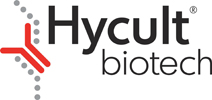当前位置:
首页
>
产品中心 >
Tag_antibody >
Hycult Biotech/Pentraxin 3,小鼠,单克隆抗体6B11,生物素化| Hycult Biotech/HM1131BT-50UG

Hycult Biotech/Pentraxin 3,小鼠,单克隆抗体6B11,生物素化| Hycult Biotech/HM1131BT-50UG
商品编号:
HM1131BT-50UG
品牌:
hycultbiotech
市场价:
¥4000.00
美元价:
2400.00
产品分类:
标签抗体
公司分类:
Tag_antibody
联系Q Q:
3392242852
电话号码:
4000-520-616
电子邮箱:
info@ebiomall.com
商品介绍
Monoclonal antibody 6B11 recognizes mouse pentraxin 3 (PTX3). The first line of defense against pathogens is represented by the innate immune system. An important part of this system is the recognition of pathogen associated molecular patterns (PAMPs) by pattern recognition molecules (PRMs). Pentraxins (PTXs) are a family of soluble cyclic pentameric PRMs. Based on primary structure, they can be divided in two groups, short and long PTXs. C-reactive protein (CRP) and serum amyloid P component (SAP) are prototypic short PTXs. Others have been classified as long PTXs. PTXs have a conserved ca 200 amino acid long c-terminal domain containing the PTX signature (HxCxS/TWxS, where x is any amino acid). Human PTX3 encodes a 381 amino acid, 45 kDa secretory glycoprotein with a 162 amino acid N-terminal extension and a 202 amino acid C-terminal pentraxin domain. There is also a high degree of conservation between from mouse to man. PTX3 is the prototypic long PTX and was originally identified in endothelial cells and fibroblasts. Orthologs of PTX3 have been foundin a variety of species. The PTX3 gene consists of three exons and two introns. The first two exons code for the leader peptide and the N-terminal domain of the protein, respectively, and the third exon encodes the pentraxin domain. PTX3 expression can among others be induced by proinflammatory cytokines like TNFα, Il1β and TLR agonists. Whereas short PTXs are produced in the liver, the main source of PTX3 expression are myeloid dendritic cells but expression is also seen in monocytes, macrophages, endothelial cells (constitutively expressed), fibroblasts, smooth muscle cells, kidney epithelial cells, synovial cells, chondrocytes, adipocytes, alveolar epithelial cells, granulosa cells and glial cells. PTX3 expression can be affected by several pathways. PTX3 is also linked to the complement system. It binds to C1q, complement factor H and ficolin-2 and is therefore involved in the classical, alternative as well as the lectin pathway of complement. PTX3 seems to have a important regulating role of complement mediated immune responses. PTX3 acts as an acute phase protein and is a potential marker for infectious, inflammatory and cardiovascular pathologies. PTX3 may play a role in vascular pathology, including atherosclerosis and restenosis, and has been considered as a marker of vascular damage. In humans, PTXs levels are correlated with the risk of developing of vascular events. It is expected that PTX3 have a cardiovascular protective effect. Furthermore, PTX3 upregulation is observed in the endothelium from patients affected by systemic sclerosis, a disease characterized by insufficient angiogenesis. The latter seems to be mediated via fibroblast growth factor 2 (FGF2). The anti-angiogenic affect of PTX3, via FGF2, has also potential to interfere with tumor progression. Like CRP and SAP, PTX3 binds apoptotic cells and debris, and has been associated with the response to tissue damage. This recognition of apoptotic cells is shared by other components of innate immunity (e.g. collectins).PTX3 expression can be affected by several pathways. PTX3 is also linked to the complement system. It binds to C1q, complement factor H and ficolin-2 and is therefore involved in the classical, alternative as well as the lectin pathway of complement. PTX3 seems to have a important regulating role of complement mediated immune responses. PTX3 acts as an acute phase protein and is a potential marker for infectious, inflammatory and cardiovascular pathologies. PTX3 may play a role in vascular pathology, including atherosclerosis and restenosis, and has been considered as a marker of vascular damage. In humans, PTXs levels are correlated with the risk of developing of vascular events. It is expected that PTX3 have a cardiovascular protective effect. Furthermore, PTX3 upregulation is observed in the endothelium from patients affected by systemic sclerosis, a disease characterized by insufficient angiogenesis. The latter seems to be mediated via fibroblast growth factor 2 (FGF2). The anti-angiogenic affect of PTX3, via FGF2, has also potential to interfere with tumor progression. Like CRP and SAP, PTX3 binds apoptotic cells and debris, and has been associated with the response to tissue damage. This recognition of apoptotic cells is shared by other components of innate immunity (e.g. collectins).
品牌介绍
荷兰HyCult Biotechnology(HBT)位于荷兰乌登,从1994开始制造检测抗体和蛋白质,主要侧重与病理学诊断有关的全套产品研发,既有纯化的重组蛋白和多肽,也有单抗和多抗,是世界一流的先天免疫领域的研究试剂制造商。
联络我们



